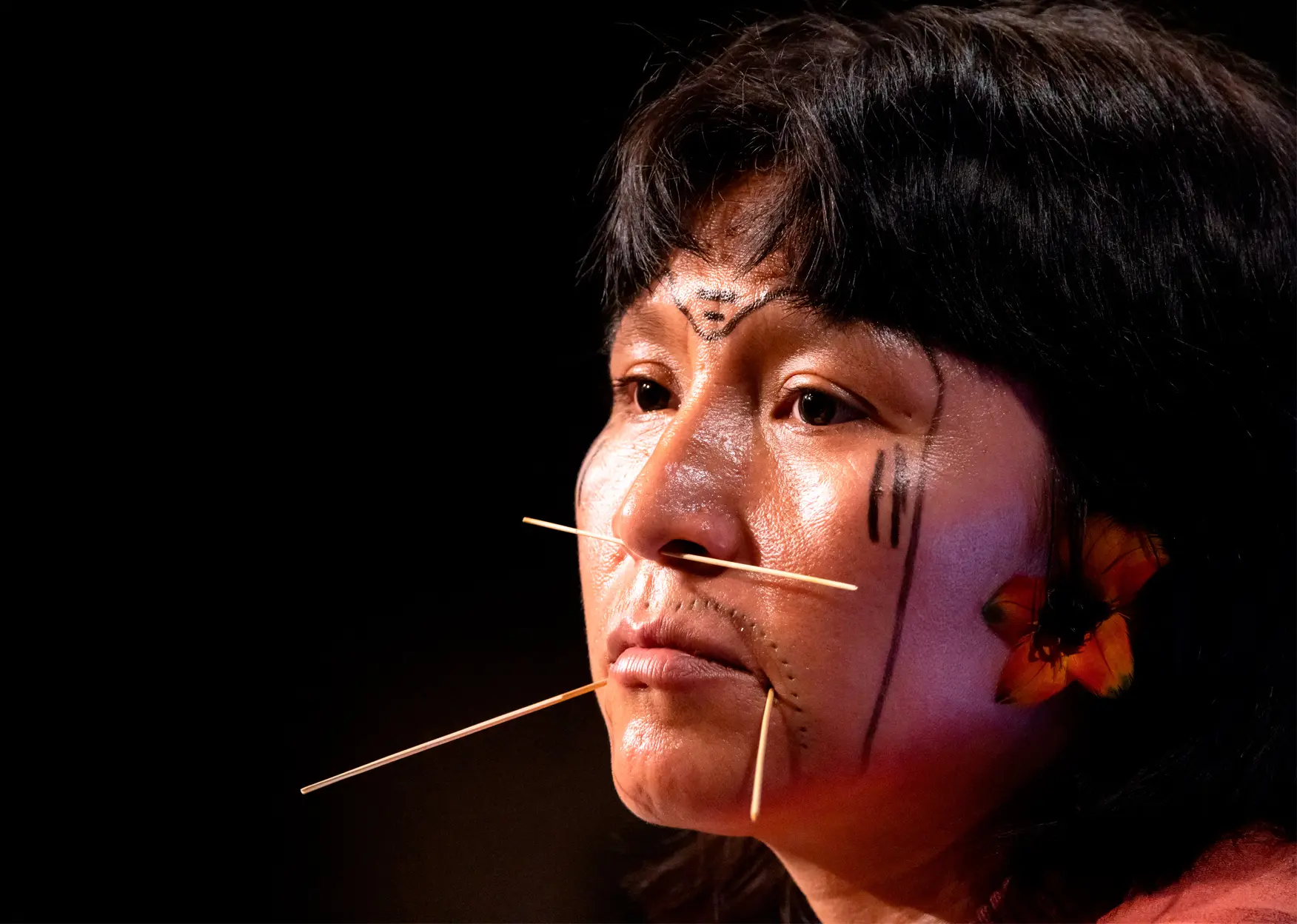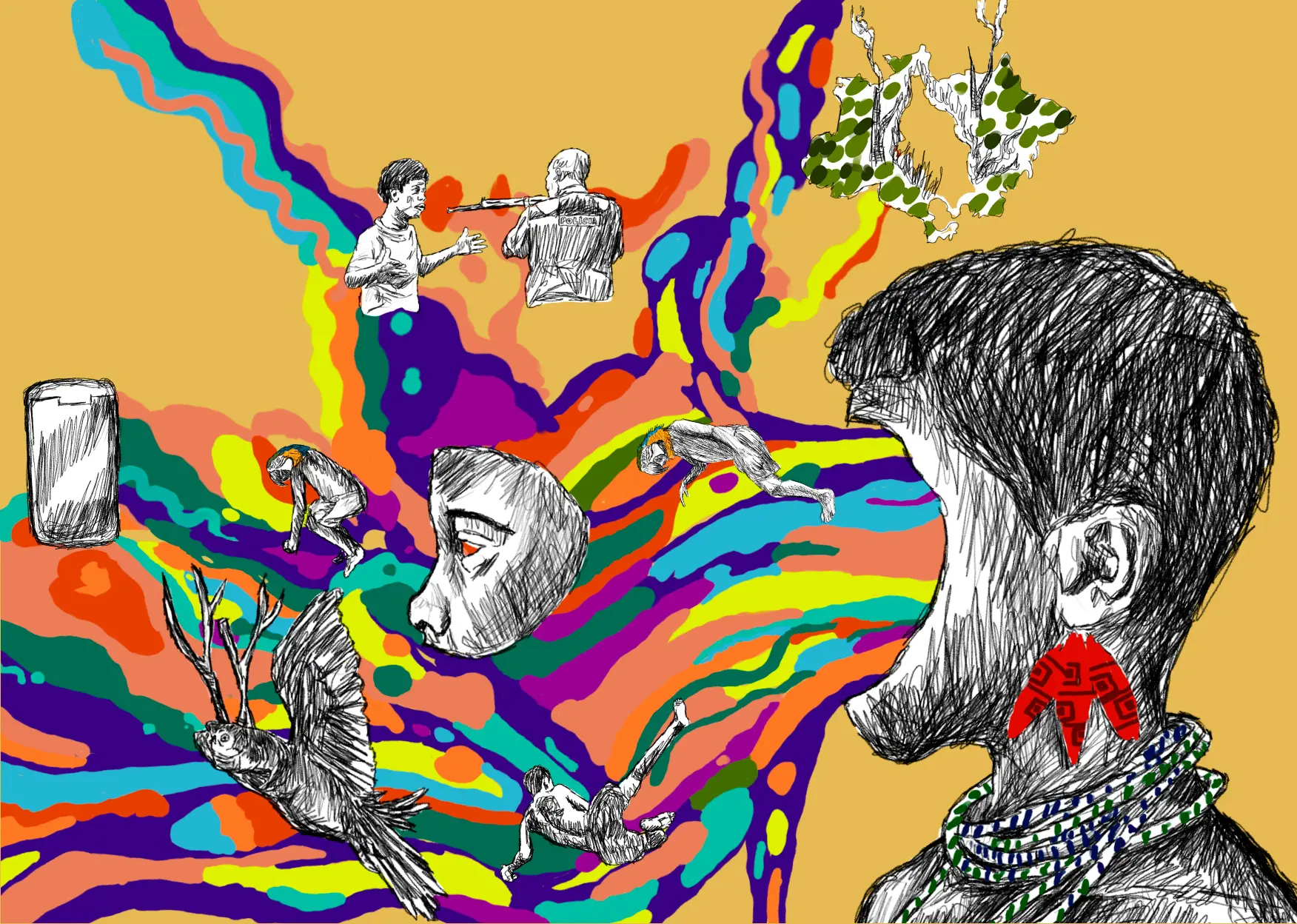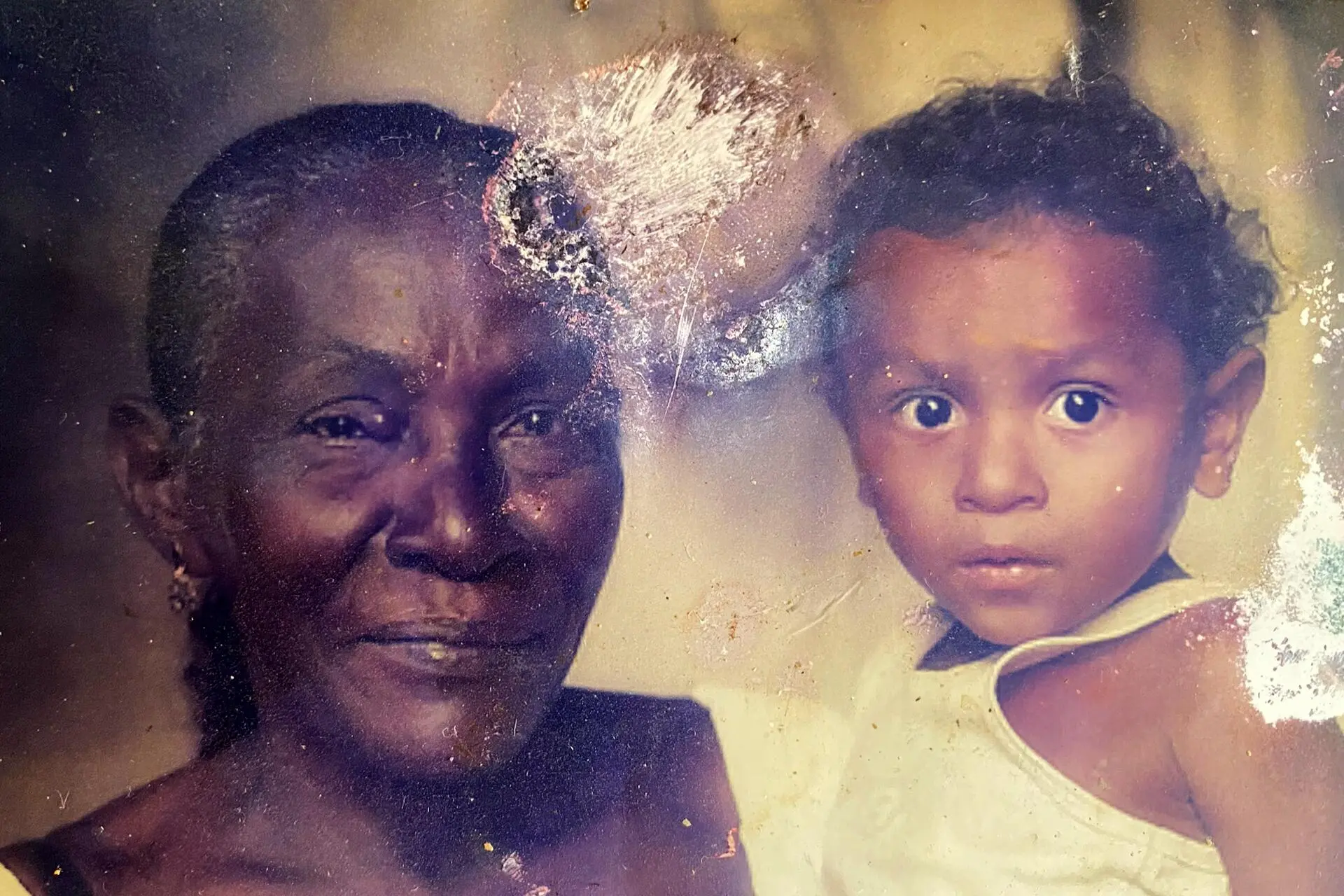“I learned that an obituary tells the story of a person who passed away. I wanted to talk about the death of the person who gave me life, but I realized my grandma lives in me, lives in my family, lives in each little piece of the community in Boa Esperança,” said 18-year-old Maxiel Ferreira, a young member of a traditional Ribeirinho forest community on the Iriri River, in the municipality of Altamira, Pará state. Max was raised by his grandma, Dona Francisca Ferreira. Or better, Dona França, as she was known by the community.
The story of Maxiel and Dona França echoes that of many Brazilian families in vulnerable situations, where time and again it’s grandmothers who take responsibility for their grandchildren. In Boa Esperança, a community with the prophetic name “Good Hope,” Dona França raised Maxiel to face all the challenges of Ribeirinho life. Midwife, mother, grandmother, cornerstone of the family, and an example to the whole community, she taught Max to pray. This conversation with heaven, with the divine, marked the Ribeirinho’s life forever – now when he misses his grandma, he can talk to her on the banks of the Iriri, surrounded by birdsong.
Max “became a good boy,” as he puts it himself. In a society where crying is seen as a sign of fragility, the young Ribeirinho knows that tears carry affection and love. He doesn’t hide them. Telling Dona França’s story means talking about hope. A good hope.
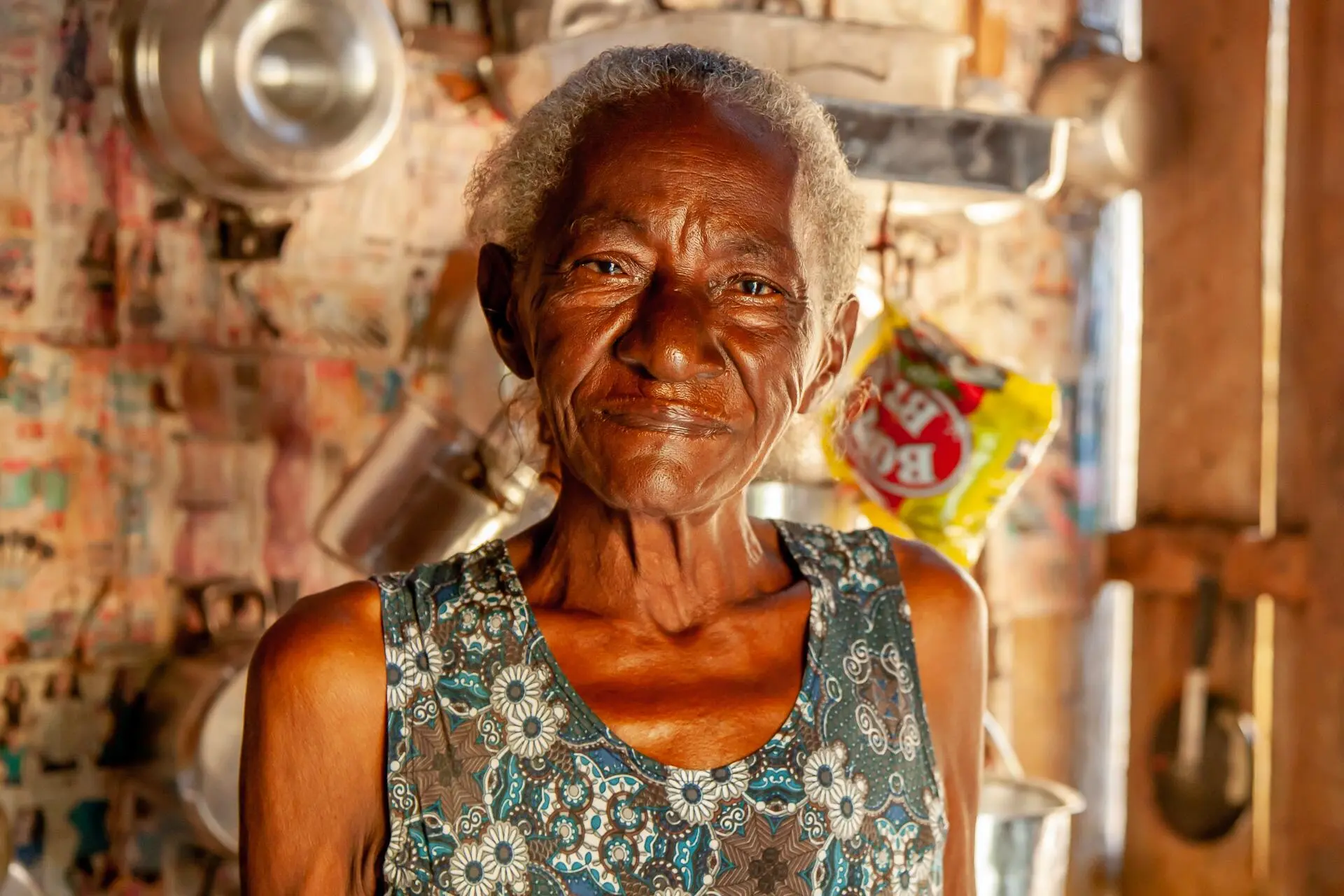
FRANCISCA FERREIRA, KNOWN IN THE COMMUNITY AS DONA FRANÇA, IN HER HOME, APRIL, 2018. PHOTO: MARCELO SALAZAR/MAZÔ MANÁ
Maxiel Ferreira is 18 years old and a young Ribeirinho living on the Iriri River in the municipality of Altamira, Pará. “Here we call someone who lives on the river a Beiradeiro [from “beira,” meaning “edge” or “bank”], which means the same as Ribeirinho. That’s what I am.” Communicator for the Iriri, Maxiel is a forest-journalist and the grandson of Dona Francisca Ferreira.
***
The Mycelium-SUMAÚMA Forest-Journalist Co-Training Program began in May 2023. Fourteen young people from the Middle Xingu—four Indigenous youth, three youth from traditional forest communities, one from a Quilombola community, one small-hold farmer, a fisherwoman, an Indigenous health nurse, and young people from urban communities in the city of Altamira—participate in gatherings in the forest and the city. The youth are guided by senior journalists at SUMAÚMA, known as “seed-mentors,” who are in turn guided by the youth, since co-training is an exchange. Maickson Serrão was the seed-mentor for this podcast on the story of Dona Francisca Ferreira.
Coordinated by Raquel Rosenberg, co-founder of Engajamundo, the teaching method used by Mycelium-SUMAÚMA, deliberately eschews any type of orthodoxy. Conceived by Eliane Brum (likewise responsible for supervision and content) and Jonathan Watts, the program maintains the rigor, responsibility, and accuracy of traditional journalism.
Micélio-SUMAÚMA also includes psychoanalyst Ilana Katz, providing care consulting, and producer Thiago de Sousa Leal. Mônica Abdalla is responsible for managing the Program’s finances, with administrative and financial assistant Marina Borges. Micélio-SUMAÚMA receives funding from the Moore Foundation and the Google News Initiative.
Podcast text, voiceover and interviews: Maxiel Ferreira
Mycelium art: Hadna Abreu
Text on this page: Maickson Serrão and Malu Delgado
Photo Editor: Lela Beltrão
Fact-checker: Plínio Lopes
Proofreader (Portuguese): Valquíria Della Pozza
Spanish translation: Meritxell Almarza
English translation: Maria Jacqueline Evans
Spanish translation:Meritxell Almarza
Copyediting and finishing: Natália Chagas
Editorial workflow: Viviane Zandonadi
Editor-in-chief: Talita Bedinelli
Editorial director: Eliane Brum
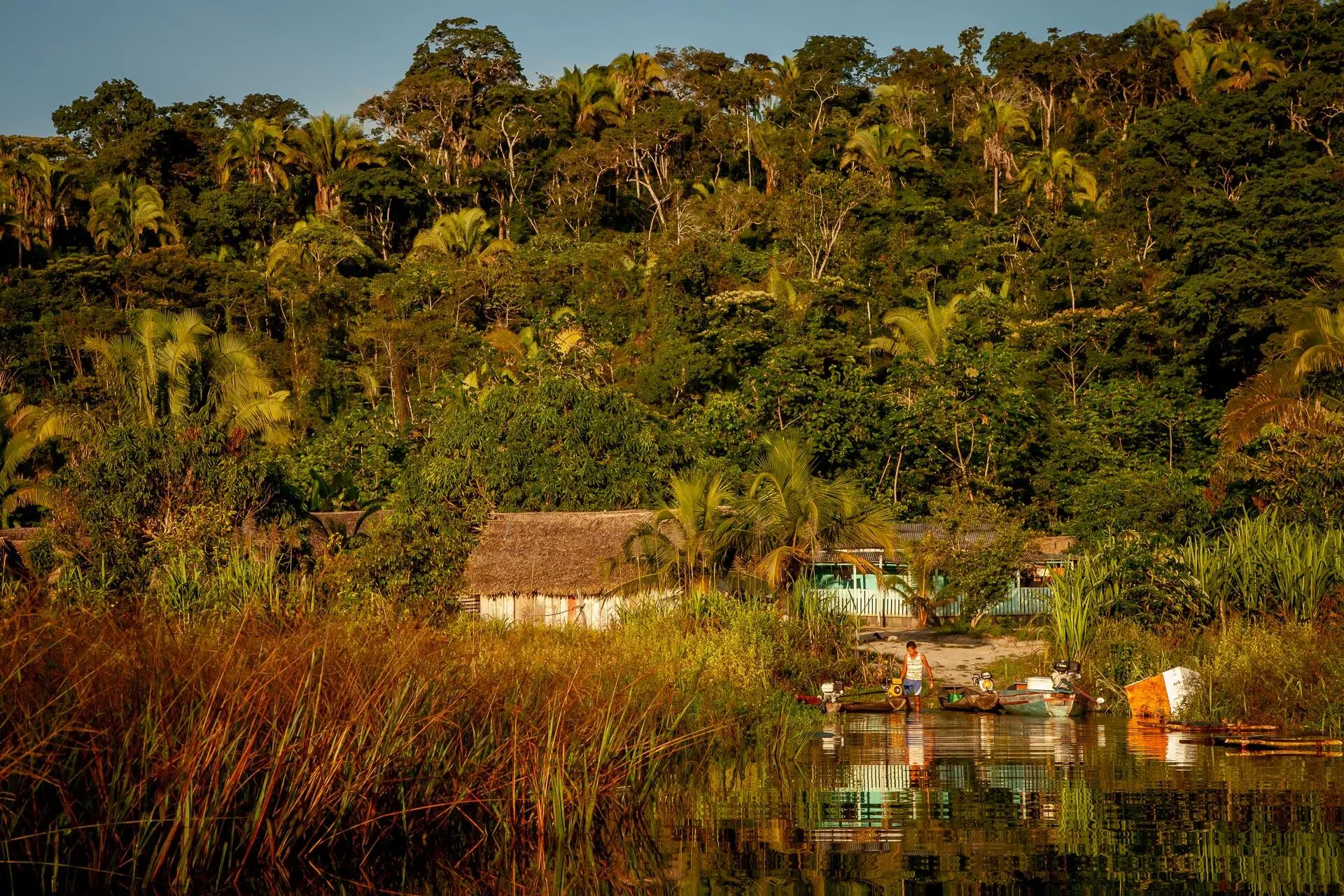
BOA ESPERANÇA, PARÁ, A COMMUNITY WITH THE PROPHETIC NAME ‘GOOD HOPE,’ WHERE DONA FRANÇA LIVED BY THE WATERS OF THE IRIRI RIVER. PHOTO: MARCELO SALAZAR/MAZÔ MANÁ

